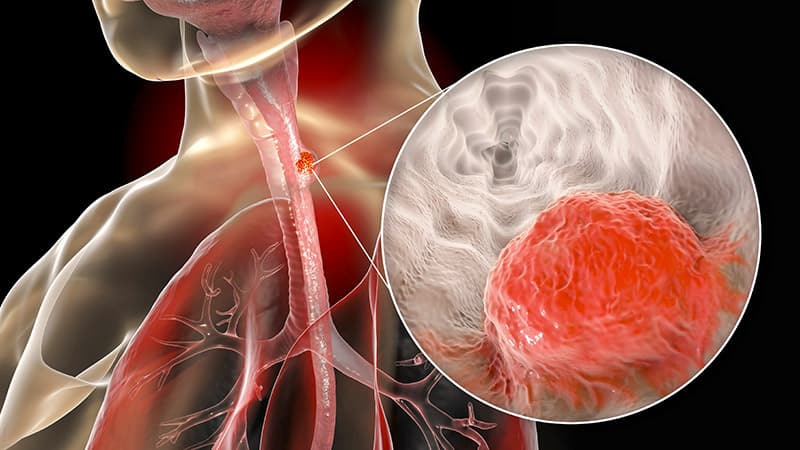
Oesophageal cancer is a significant health concern in India, with more than 70,600 new cases reported in 2022. This shows how many people and families are affected by the disease.
For each person, living with oesophageal cancer can feel overwhelming. Treatments such as surgery, chemotherapy or radiotherapy can affect appetite, digestion and energy levels. Because of this, eating well and following healthy daily habits become very important. The following steps help the body cope better with treatment, support recovery and improve overall well-being.
Importance of Nutrition During Treatment
For individuals undergoing the treatment of oesophageal cancer in Delhi, careful attention to dietary choices can make a meaningful difference. Proper nutrition helps maintain strength, supports the immune system, and prevents unnecessary weight loss, which is common among patients receiving intensive therapies. When coupled with lifestyle modifications, these measures can help manage fatigue, reduce discomfort during meals, and improve overall well-being. Patients are encouraged to follow guidance from certified dietitians or oncologists to ensure their diet meets individual needs.
Understanding Oesophageal Cancer
Oesophageal cancer impacts the tube that carries food from the mouth to the stomach. This can make tasks such as swallowing and digestion more challenging, potentially affecting how much a person can eat. Many people also experience a feeling of food getting stuck, reduced appetite or gradual weight loss. Understanding these changes helps in planning a suitable diet and daily routine.
Doctors decide the treatment plan based on medical needs. Nutrition and healthy daily habits play a supportive role by helping manage symptoms, maintain strength and improve comfort during treatment.
Nutrition Tips for Patients
Proper nutrition is essential to help patients cope with treatment side effects and maintain strength. The following dietary strategies can support recovery and overall health:
- Small, Frequent Meals: Eating smaller portions can make food easier to swallow and reduce discomfort. Aim for five to six meals instead of three large ones.
- Soft or Pureed Foods: Soups, mashed vegetables, smoothies or soft cereals can be easier to swallow and still provide good calorie and nutrient intake.
- High-Protein Options: Protein helps maintain muscle mass and supports tissue repair. Foods such as eggs, dairy, lentils, tofu, and soft fish are recommended.
- Hydration: Adequate fluid intake is crucial to prevent dehydration, especially during chemotherapy or radiation therapy. Water, clear broths, and herbal teas are beneficial.
- Avoid Irritating Foods: Spicy, acidic, or very hot foods may cause discomfort. Monitor tolerance and avoid foods that worsen symptoms.
- Consult a Dietitian: Individual dietary needs vary depending on treatment type and side effects. Professional guidance ensures a balanced and personalised diet plan.
Consistently following these nutrition strategies can help patients maintain energy levels, reduce treatment-related complications, and support overall recovery.
Lifestyle Adjustments
Alongside nutrition, adopting certain lifestyle habits can significantly improve the quality of life during treatment. Consider the following adjustments:
- Gentle Physical Activity: Light exercise, such as walking or stretching, helps maintain mobility, improve mood, and reduce fatigue. Activities should be according to the patient’s energy levels and medical advice.
- Rest and Sleep Hygiene: Quality sleep supports the body’s healing process. Maintaining a regular sleep schedule and creating a comfortable sleeping environment are beneficial.
- Stress Management: Emotional support is essential for coping with treatment. Meditation, deep breathing exercises, or counselling can help reduce anxiety and improve mental health.
- Oral Hygiene: Maintaining oral care is essential, especially during chemotherapy or radiation therapy, as these treatments can cause mouth sores and infections.
- Avoid Alcohol and Smoking: Alcohol and tobacco can interfere with treatment effectiveness and delay recovery. Complete avoidance is recommended.
Incorporating these lifestyle adjustments alongside a balanced diet can enhance treatment tolerance, reduce side effects, and improve overall well-being.
Support Systems and Caregivers
Support from family members and caregivers plays an integral part in helping patients manage oesophageal cancer. Caregivers can assist with meal preparation, encourage healthy daily habits, and offer emotional comfort. Simple actions, such as helping with hydration, accompanying the patient to appointments and giving gentle encouragement, can ease stress and improve day-to-day comfort.
When to Seek Professional Help
Even with careful nutrition and lifestyle management, certain signs require immediate medical attention. Patients should consult healthcare providers if they experience:
- Severe difficulty swallowing
- Unexpected weight loss
- Persistent vomiting
- Signs of infection, such as fever or sores
Prompt consultation ensures timely intervention and adjustment of treatment or dietary plans.
Conclusion
Nutrition and lifestyle modifications are essential components of care for patients undergoing treatment of oesophageal cancer in Delhi. By focusing on small, frequent meals, soft and high-protein foods, hydration, gentle physical activity, and stress management, patients can better tolerate treatment, maintain strength, and improve overall quality of life. Support from caregivers and regular medical consultation remain critical throughout the treatment journey. With careful attention to nutrition and lifestyle, patients can navigate treatment more comfortably and enhance their chances of recovery.




